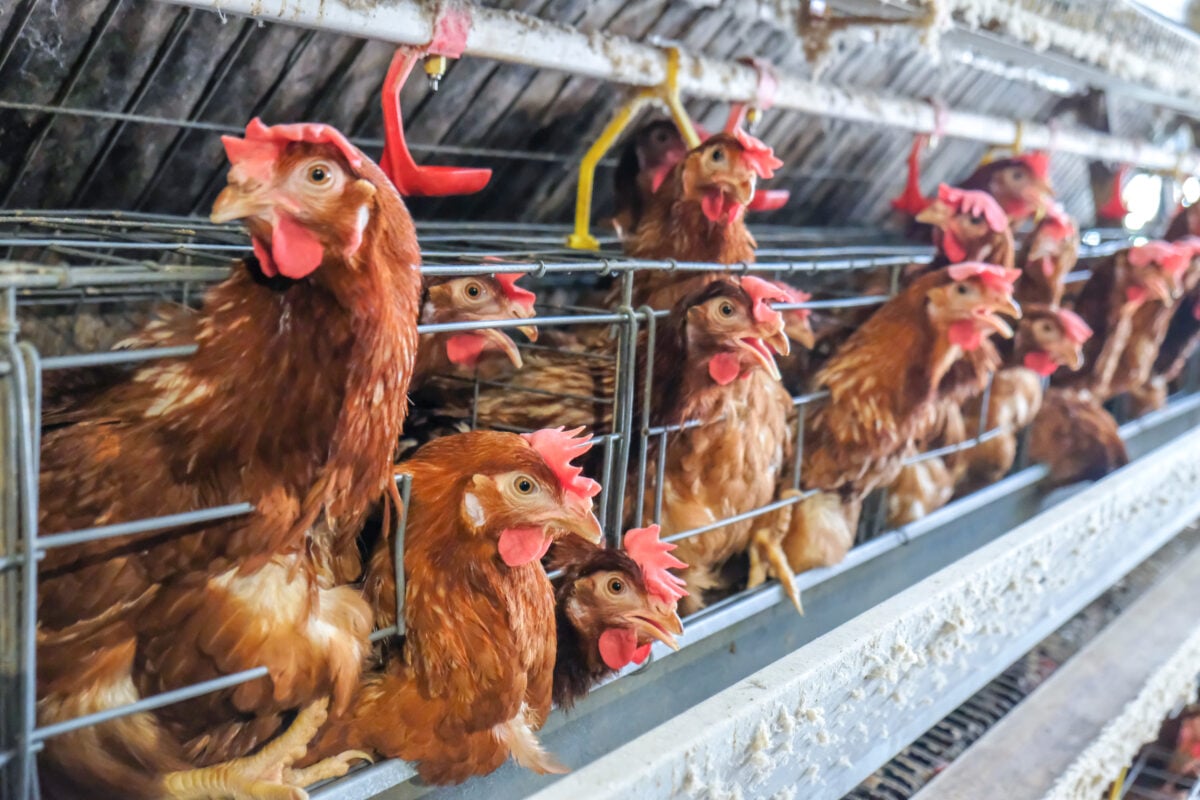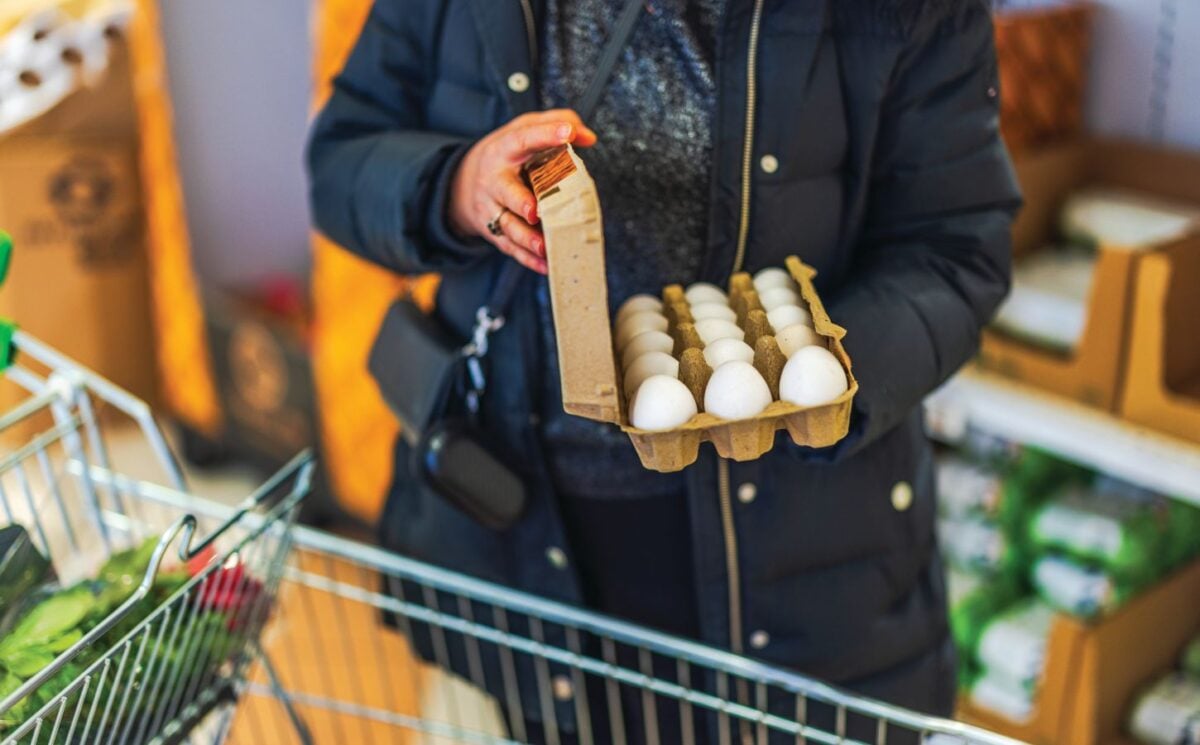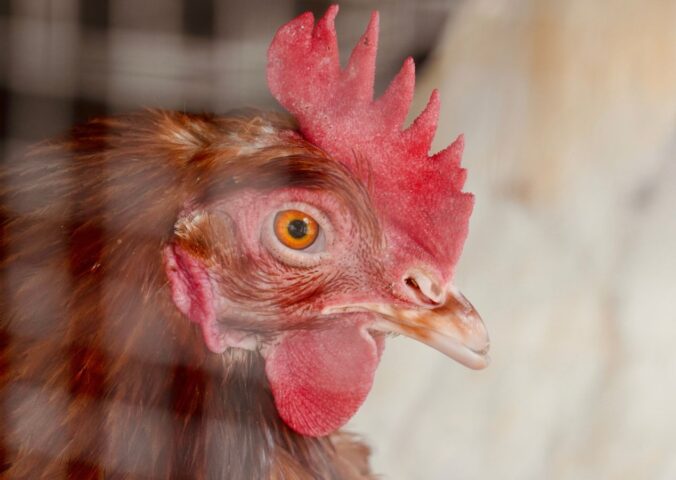A new report has found that “pervasive” misinformation about the food system affects people’s perception of meat, dairy, eggs, and other animal products.
The findings indicate that the dominant, pastoral image of animal farming in marketing does not represent reality. In fact, most farmed animals – around 85 percent in the UK – are raised on factory farms.
Food Chain Misinformation was published this week by The Animal Law Foundation, a UK-based legal research charity and lawyer collective. In a statement sent to Plant Based News, The Animal Law Foundation’s executive director Edie Bowles noted that “something has clearly gone wrong,” particularly when so many British consumers care about animal welfare. Posting about the report on X, Animal Law Foundation said Brits are being “systematically misled” about their food.
Relevant provisions under the Digital Markets, Competition, and Consumers Act of 2024 are due to come into effect from April 2025. The new act explicitly prohibits unfair commercial practices such as providing false or misleading information to sell a product. Its predecessor, The Consumer Protection from Unfair Trading Regulations 2008, also prohibits misleading action and omission.
Read more: The ‘Shocking’ Rise In US-Style Mega-Farms In The UK
‘We need urgent action’

To produce the report, researchers reviewed the websites, advertisements, and products of 47 producers and processors of dairy and eggs, as well as chicken, duck, turkey, pig, and lamb meat. Only three of these did not use photos of animals on their website. Of the 44 producers that did use animals, 84 percent used imagery of animals living outdoors. While 61 percent showed images of animals indoors, all of the animals appeared healthy, and nearly 30 percent depicted spacious conditions. Forty-eight percent also used blurry, cropped, or unclear imagery.
All major supermarket websites feature images of apparently healthy animals living outdoors, and almost 67 percent used imagery of animals alongside farmers. Three out of the nine supermarkets did not show imagery of animals living indoors. Of those that did, the animals appeared to be healthy. The indoor imagery showed a cow alongside her calf, well-lit barns, and clean hay. Just two supermarkets depicted animals indoors in “what could be characterised as standard commercial conditions,” the report said.
According to Animal Law Foundation, dairy pooling, where milk from multiple farms is processed together, means that it is extremely difficult for consumers to find out if the cows that produced the milk they purchase were ever grazed outdoors, unless that milk is organic. Meanwhile, the law in England, Scotland, and Wales is set to be updated to loosen the requirements for a “free range” label due to bird flu. This means that a so-called free-range hen could potentially spend her entire life inside.
“Just as regulators are cracking down on greenwashing, we need urgent action to address ‘humane-washing’ in animal agriculture,” said Bowles. “Consumers must be able to trust the claims made on the food they buy, and authorities must ensure that those who partake in misleading practices are held to account.”
Read more: More Than Half Of Brits Unaware Cows Must Be Impregnated To Produce Milk, Survey Finds






